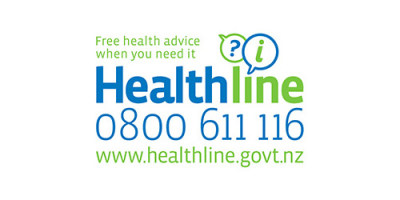Pertussis (Whooping Cough) Case Confirmed in Nelson Marlborough region - 14 April 2023
The Nelson Marlborough Public Health Service was notified today of a confirmed case of pertussis. This is believed is the first confirmed case of pertussis in Te Waipounamu (South Island) this year.
Our Public Health Service notes that although there is only one case confirmed, this case has caught the illness from another case, and it is therefore very likely to be spreading in the community and it is crucial for people to be vigilant.
Whooping cough (also known as pertussis) is an infectious disease that causes coughing and difficulty breathing.
What are the symptoms of pertussis (whooping cough)?
Whooping cough affects people of all ages but can be very serious for infants.
Te Whatu Ora - Nelson Marlborough Chief Medical Officer of Health, Dr Nick Baker notes "Small infants frequently do not have the classical cough, apnoea and cyanotic episodes can be very dangerous."
Whooping cough is most infectious in the first two weeks. The symptoms usually appear around a week after infection and start just like a common cold – runny nose, sneezing, slight fever and a mild irritating cough.
After a week or two, coughing fits (paroxysms) are the main symptom. A paroxysm is characterised by:
-
a spasm of coughing that brings up thick phlegm
-
a sharp intake of breath or ‘whoop’ sound after a cough (mainly in children, not babies or adults)
-
vomiting after coughing, especially in infants and young children
-
tiredness and redness in the face from the effort of coughing.
What to do if you suspect whooping cough
The Nelson Marlborough Public Health Service (PHS) urges people to be vigilant and seek immediate advice from their GP or Healthline (freephone 0800 611 116) if they or their children show whooping cough symptoms.
How does pertussis (whooping cough) spread?
Whooping cough is very easily spread in the air when an infected person sneezes or coughs. It’s difficult to avoid catching it if one person in a home or class is contagious, so it’s important that people act on the symptoms quickly.
It is estimated that each person with whooping cough passes the infection on to 12 other people.
How is pertussis (whooping cough) treated?
Antibiotics may help reduce the severity of the illness if started very early
If whooping cough is diagnosed during the first 3 weeks of the infection, antibiotics may be effective in making the illness less severe if they are taken very early, before the cough starts, and help prevent the bacteria from spreading to other people.
If started early, antibiotics can reduce the amount of time you are infectious to others from about 3 weeks to 5 days. Even then, they may make only a small difference.
There is no medicine that will stop the cough once it has started
Your immune system will get rid of the bacteria after 3 or 4 weeks without any treatment but the damage caused to your breathing tubes takes longer to repair. There is no medicine that will stop the cough once it has started. Cough medicine will not ease the coughing and is not recommended in young children.
How can I protect myself from pertussis (whooping cough)?
Vaccination protects both you and those vulnerable to becoming seriously unwell – this is babies from 6 weeks old. It's very important for pregnant people to protect their unborn pēpi by getting a free pertussis vaccination if they have not already been vaccinated.
The whooping cough vaccination is free for people who are eligible from GPs and some pharmacies. Vaccination is free for:
-
all children and young people aged under 18 years
-
pregnant people
-
all adults at 45 and 65 years of age as immunity reduces (same vaccine as the tetanus booster)
-
some groups at higher risk of becoming very unwell if they catch whooping cough (eg, people with chronic respiratory conditions, congenital heart disease or with a weakened immune system).
-
Babies and young children should get their vaccine doses on-time at 6 weeks, 3 months and 5 months. Booster doses are then available at 4 and 11 years old.
Whooping cough is very contagious, so please call your GP or Healthline on 0800 611 116 rather than going into the Hospital or Urgent Care Centres.





